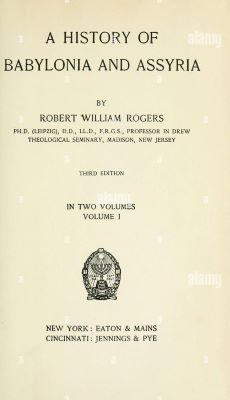
Arms and the nation. Arms and the successful rebellion. We are now painfully aware of the necessity of an outside arms supplier to win a war. Russia, Ukraine, Hamas, and Israel all require the support of third parties to provide the munitions required to sustain and win a military confrontation. The surprise in the group is Russia. It just expected to waltz in and declare victory almost without even having to fire a shot. Now it knows better.
Even though the third-party supplier or suppliers may not have boots on the ground, that source may be critical to the outcome. American history going back to our origins long before the lend lease cited by Thomas Friedman provides examples of the importance of being both the recipient as well as the donor of munitions. By coincidence, the current journal article “The Arms Trade and the American Revolutions,” by Brian DeLay (American Historical Review 128:3 2023, 1144-1181) addresses these very issues.
AMERICA, THE IMPORTER
First, let’s turn to the would-be United States and its need for munitions at the birth of the country. Firearms were among the eighteenth century’s most technologically complex consumer good. According to DeLay
As European gun making became more sophisticated, specialized, and efficient, most of the rest of the world (including Africa) choose to import guns instead of trying to compete through domestic manufacturing.
Manufacturing was only part of a confounding, interlocked morass of contracts, payment, and transport that collectively served to create an imposing obstacle to major anticolonial rebellions.
If it all sounds basically hopeless for would-be insurgents, that’s because it was.
It was precisely this level of arms control that contributed to observers expressing doubt that the British North Americans could win a rebellion against their king. It would be like expecting Ukrainians to stalemate a Russian invasion.
However, because of all the wars Britain had fought in North America against others in the preceding century, there were plenty of muskets, artillery, and ammunition already in the colonies. There also were plenty of well-armed men with military experience especially compared to any of the other colonies in the hemisphere. When preparing for its own rebellion, the Americans began to raid/seize these armaments the British left behind. In response, the British planned to reacquire those stockpiles in Concord on April 19, 1775. The attempt failed and the battle was ensued.
The net conclusion is that Americans were incapable of either making or buying enough materiel to equip the rebellion. According to DeLay,
Britain would have regained its thirteen rebellious North American colonies were it not for the extraordinary decisions by France and Spain to secretly arm them and then declare war on their behalf.
In fact, England’s fear that the losers of the French and Indian War would supply Washington with the men and weapons he needed proved well founded. Without that assistance, we probably would not be approaching the 250th anniversary of the birth of this country.
AMERICA, THE EXPORTER
By the time of the French Revolution, something new had emerged in the Atlantic world. According to DeLay, a populous, independent republic unrestrained by colonial anxieties, possessed of a large and growing merchant marine, and deeply committed to buying, making, and selling guns, now took center stage.
… independence would have been impossible in Haiti or the Spanish American republics were it not for US arms trafficking that flourished in the regime’s absence.
This shared history has been obscured in the scholarship on the Age of Revolutions, scholarship that remains overwhelming organized by country…
The few historians who write connectively about American revolutions mostly focus on ideas.
The triumph of the United States against Britain changed the armament calculations in the hemisphere. Suddenly there was a new gun manufacturer to account for. Du Pont began its fabled history in this country then.
This development also changed the standard story of what happened in Haiti.
It would take large-scale weapon imports before the rebellion in Saint-Dominque could become a mass movement and one of the signal events in modern history.
The other slave rebellions which had erupted prior to the Haitian one lacked the staying power to survive for more than a few days or weeks. The insurgents simply ran out of military gas, so to speak.
Now the story was different.
In Saint-Domingue, the vast majority of insurgent gunpowder and most of their guns came not from European patrons but from US merchants.
According to DeLay,
The complexity and pace of events in and around Saint-Domingue confounded tidy narratives of slave versus free and Black versus white.
The knowledge that the United States itself had required foreign patronage itself to achieve independence rewrote the rules of engagement for the rebellions which followed the American one.
DeLay concludes,
… [For] generations of scholars … [most] have ignored or minimized the material role … the United States played in the insurgencies’ eventual success….
(N)o country in the hemisphere managed to build a significant domestic arms industry in the century after independence
…with the exception, of course of the United States. Or another way to put it, we already were an imperfect “arsenal of democracy.”
Here we may observe the danger of tunnel vision and the narrow-mindedness of people responding to the American Revolution.
If there had been MAGAs in France playing political games with the offer of assistance, the United States would not have had the arms and munitions it needed even before the arrival of Rochambeau.
The American Revolution was not simply a local event between 13 colonies and one foreign country fought here. It was a global confrontation much as the Seven Years War had been only a few years earlier. An American First/America Alone mindset is inadequate to understand what transpired then. The example and success of the United States had ripple effects throughout the western hemisphere especially in the Spanish Empire. To judge the American Revolution without taking into account these international developments would be like judging the Declaration of Independence while ignoring its impact on the end of slavery or the women’s right movement.
The United States itself was the beneficiary of the end of arms supplies to the Northwest Indian Confederacy. Britain pulled the plug on support for the Indian Confederacy as a result of the Jay Treaty negotiated by John Jay. The closing of British forts in the northwest and the discontinuance of arms supplies to the Indian Confederacy was a contributing factor in the victory by General Mad Anthony Wayne in 1794 at the Battle of Fallen Timbers. The decision to provide arms or to cease to provide arms played an important role in American history … decisions not based on offsets to help rich people get richer.





